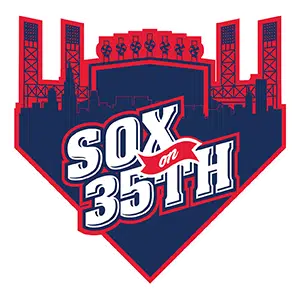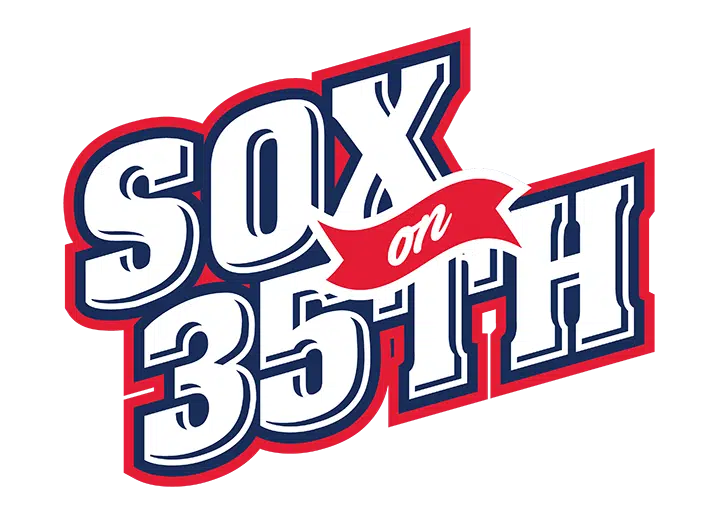One of the first things I ever read about Luis Robert was this tweet:
“The best player on the planet & that’s no exaggeration."
– AL int'l scouting director.
Meet Cuban OF Luis Robert: https://t.co/6uWREPosBX pic.twitter.com/NZXAnnRhxh— MLB Pipeline (@MLBPipeline) February 24, 2017
Unfortunately, that probably is an exaggeration, despite the end of the quote. Regardless, Robert does have immense potential. The White Sox would not have paid him $26 million (plus another $26 million in tax to MLB) if he did not have a star ceiling. I decided to outline some potential career paths in three sections: worst-case, best-case, and most realistic.
Worst-Case:
With any prospect, regardless of skill or potential, there is always a possibility of injury that could prevent him from ever reaching the big leagues or reaching his potential. Obviously, this is the actual worst-case scenario. Assuming that Robert at least stays healthy enough to reach the big leagues and plays with some consistency, however, it is hard to envision him being any worse than a good bench player. In fact, he could probably be a good bench player for the Sox now (if he were healthy). He simply has too much talent to be any worse. If he doesn’t develop as a hitter, his speed and defensive potential would make him an ideal backup outfielder.
In case you aren’t aware, Robert doesn’t just have good speed, but he has “fastest runner in baseball” speed.
Renteria raves about the speed and power Luis Robert showed during Dominican instructional league. Said Robert ran to first base off a full swing in 3.56 seconds
— James Fegan (@JRFegan) December 12, 2017
It is possible that there is human error embedded in this time. Regardless, a 3.56 second home to first time is practically unheard of. For context, @LauriLegend posted this link in reply to Fegan’s tweet. It’s an interesting read, but if you don’t want to click on it, the fastest average time from home to first in 2017 was Billy Hamilton‘s 3.77 seconds. Even if Robert’s 3.56 figure is inaccurate and/or faster than his average, it still leads one to believe that he may have what it takes to become the fastest player in baseball. If he stays healthy and fails as a hitter, it’s easy to see Robert excelling as a speedy, good defensive sub in the outfield.
Best-Case:
Part of what makes Mike Trout (on track to be) the greatest player of all-time is his relatively newfound plate discipline which has led to him walking more often than he strikes out. While Robert has shown glimpses of this ability, he has done so against far inferior competition. The lack of elite plate discipline is the biggest difference he would have from Trout in an ideal, healthy scenario in which Robert develops to his full potential.
However, based on pure skill, Mike Trout is actually a great comparison for Luis Robert if he develops perfectly. The odds of this are very slim, but Robert’s contact ability combined with his raw power, speed, and defensive potential make him a virtually flawless player if everything clicks. Again, I want to reiterate that this is highly unlikely. If he ends up being even 75% of Mike Trout, it would still be a very favorable outcome for the White Sox.
Most Realistic:
Chances are that Luis Robert is not the next Mike Trout. But, if he stays healthy, he can easily be a solid starting center fielder, perhaps even an all-star. Possibly the most overlooked aspect of Robert’s game is his power. Robert’s 60 grade raw power is identical to Aaron Judge‘s grade given by MLB Pipeline. The reason Robert has not been a major home run threat yet is due to his nagging wrist and hand injuries, which have also forced him to miss most of the 2018 season.
In my opinion, these are really the most important factors in Robert’s development. We know he has tremendous raw power, but whether he can apply it in games is unknown. He has been banged up often over the past year, and one can only hope that this issue does not persist. But if Robert can indeed stay healthy, he can realistically be an extremely fast, above average defensive center fielder based on talent alone. At the plate, he figures to be an average to above average hitter with some power. Of course, if he really taps into his power, then he can be an MVP candidate in his prime. Even if he never becomes a major home run hitter, however, he can still be a very valuable player to have in center field- one who likely ends up playing in a few all-star games. Think somewhere between a faster Lorenzo Cain and a (hopefully) healthier AJ Pollock, perhaps with more power than both.
The possibilities with Robert are endless, and watching him develop should be one of the most exciting parts of the rebuild. He has the highest ceiling of any prospect in baseball, especially once you factor in his potential value on defense and the basepaths. While he may not become Mike Trout, he should still be a very effective player if he can stay healthy.

